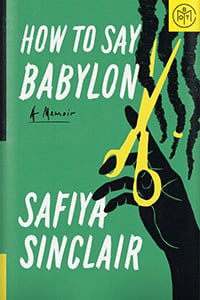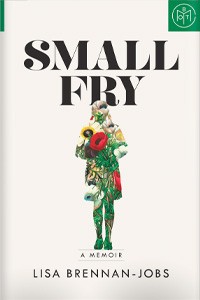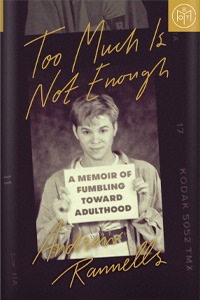

Memoir
The Beauty in Breaking
Debut
by Michele Harper
Quick take
Forget Grey’s Anatomy. Here’s the real story of an ER doctor's life, from injustice and heartbreak to healing and hope.
Good to know
Heavy read
Inspirational
Nonlinear timeline
Literary
Synopsis
Michele Harper is a female, African American emergency room physician in a profession that is overwhelmingly male and white. Brought up in Washington, D.C., in an abusive family, she went to Harvard, where she met her husband. They stayed together through medical school until two months before she was scheduled to join the staff of a hospital in central Philadelphia, when he told her he couldn't move with her. Her marriage at an end, Harper began her new life in a new city, in a new job, as a newly single woman.
In the ensuing years, as Harper learned to become an effective ER physician, bringing insight and empathy to every patient encounter, she came to understand that each of us is broken—physically, emotionally, psychically. How we recognize those breaks, how we try to mend them, and where we go from there are all crucial parts of the healing process.
The Beauty in Breaking is the poignant true story of Harper's journey toward self-healing. Each of the patients Harper writes about taught her something important about recuperation and recovery. How to let go of fear even when the future is murky. How to tell the truth when it's simpler to overlook it. How to understand that compassion isn't the same as justice. As she shines a light on the systemic disenfranchisement of the patients she treats as they struggle to maintain their health and dignity, Harper comes to understand the importance of allowing ourselves to make peace with the past as we draw support from the present. In this hopeful, moving, and beautiful book, she passes along the precious, necessary lessons that she has learned as a daughter, a woman, and a physician.
Free sample
Get an early look from the first pages of The Beauty in Breaking.
Why I love it
Sunita Puri
Author, That Good Night: Life and Medicine in the Eleventh Hour; Medical Director, Palliative Medicine & Supportive Care
Doctors inhabit a strange place in American society. We are both expected to play God and admonished for thinking we are God. We are chastised for being robotic or standoffish, yet our professionalism might be questioned if we cry in front of a colleague or patient. As a writer and a palliative medicine physician myself, I help patients retain their humanity by helping them to articulate what matters most to them in the face of illness and death. Yet I am keenly aware that my own humanity, in all of its beauty and brokenness, is not allowed in the rooms where I minister to patients and teach my colleagues how to balance a respect for personhood with invasive, painful ways of treating illness with medications and machines. Though we tend to the vulnerable night and day, we physicians must find ways to suppress our own humanity and vulnerability while on the job.
Michele Harper’s memoir challenges this one-dimensional portrait of physicians by excavating her own personal history, holding it up to the light, and pushing her readers to do the same. She shows us, chapter by chapter, what it means to practice emergency medicine as both a Black doctor encountering racism and a person who has witnessed and survived terrible abuse. She tells her readers what it was like to live with a violent father who frequently beat her mother, and how she eventually left that home to attend Harvard and become an emergency room physician—but not without experiencing the crumbling of her marriage.
These stories are the truth of why many of us practice medicine—tending to the wounds of others changes our relationship to our own wounds. Michele’s journey continues on, and she shows us how precisely she dealt with her past by first acknowledging it, then accepting and even embracing it. Michele openly discusses topics that I know for a fact many of my colleagues have experienced but would never share, fearing that doing so would compromise their reputation. But if I knew that an irritable surgeon was going through a heart-wrenching divorce, might I be able to address his outbursts with more compassion? If I found out that a medical student couldn’t bear to perform a urologic exam not because of immaturity but because of a history of sexual abuse, how might I teach her an essential skill differently?
Doctoring and healing are not the same thing, as Michele comes to realize, though they may go hand in hand. Does your own suffering help you to be a better doctor? Does acknowledging and embracing your losses help you to attend compassionately to those who are mortally injured or suspended in the purgatory between life and death? Maybe, as Michele writes, being on the brink of despair enabled her to “uncover a newfound freedom,” one grounded in love for others, and for herself. This is a message to be heeded particularly in these times, when many are at the brink of despair, waiting for words like Michele’s to provide sanctuary and rescue.




















